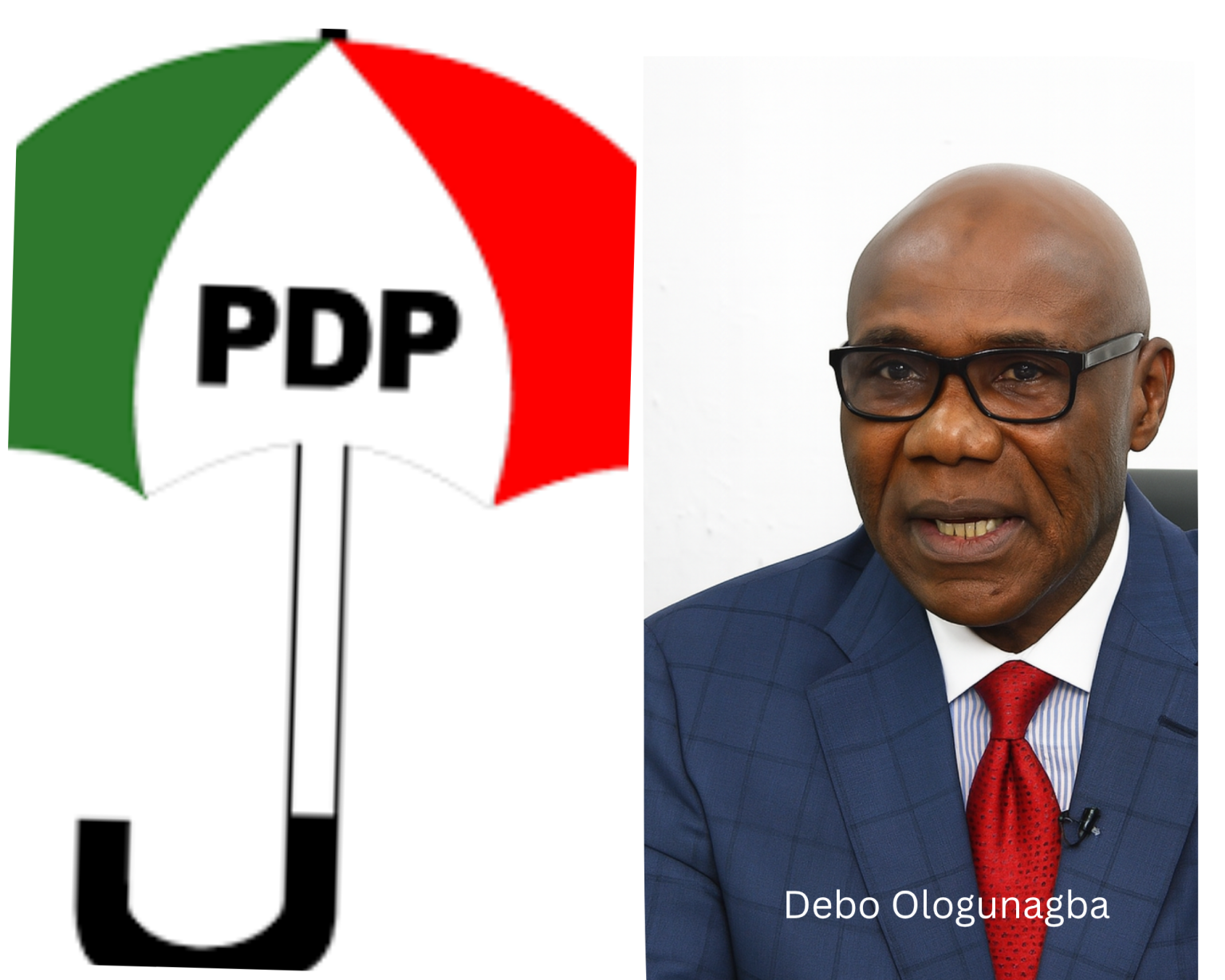The Peoples Democratic Party (PDP) has urged the Nigerian Senate to exercise independence and due diligence in screening Professor Joash Amupitan (SAN), President Bola Tinubu’s nominee for the position of Chairman of the Independent National Electoral Commission (INEC).
The opposition party warned that Nigeria’s democracy was “on trial” and cautioned senators against approving the nominee “under partisan influence” or treating the process as a mere formality.
PDP Warns Against Partisan Confirmation
At a press briefing held at the party’s National Secretariat in Abuja on Friday, the PDP’s National Publicity Secretary, Debo Ologunagba, emphasised that the independence and credibility of INEC are vital to sustaining Nigeria’s democracy.
“What Nigerians expect is that the Senate will do its job without bias,” he said. “If the nominee is found worthy, he must demonstrate commitment to strengthening democracy, rebuilding confidence in the electoral process, and restoring trust in INEC’s impartiality.”
Ologunagba stressed that while the president has the constitutional right to nominate the INEC chairman, the Senate’s confirmation role serves as the ultimate safeguard for democracy.
“The Constitution empowers the president to nominate, but it entrusts the Senate with the responsibility of confirming on behalf of the people,” he said. “That duty must not be trivialised or compromised.”
Read Also:
Ologunagba explains dissolution of Akwa Ibom PDP executives
Atiku reveals constraints on fixing PDP crisis before ADC switch
He added that the PDP believes in “building strong institutions, not strong individuals,” urging lawmakers to prioritise national interest over political loyalty.
“When institutions are independent, democracy thrives,” he noted. “The Senate must therefore rise above party lines and defend the integrity of our electoral system.”
Tinubu’s Nomination and Council of State Approval
On Thursday, President Tinubu submitted the name of Professor Joash Ojo Amupitan to the National Council of State for endorsement, following the expiration of Professor Mahmood Yakubu’s ten-year tenure. The Council unanimously approved the nomination, clearing the way for Senate consideration.
Amupitan’s selection is notable for being the first INEC chairmanship appointment from Kogi State and the North-Central region. The presidency described him as “apolitical, disciplined, and eminently qualified.”
Who Is Professor Joash Amupitan?
Born on 25 April 1967 in Ayetoro Gbede, Ijumu Local Government Area of Kogi State, Professor Amupitan is a respected legal scholar and accomplished academic.
A graduate of the University of Jos, he finished top of his class, earning the Richard Akinjide Prize for Best Graduating Law Student and the University Chancellor’s Prize for Academic Excellence.
He obtained his LLB (Hons) in 1987, BL from the Nigerian Law School in 1988, LLM in 1993, and PhD in Law in 2007—all from the same university.
He was called to the Nigerian Bar in 1988 and became a Senior Advocate of Nigeria (SAN) in 2014. His areas of expertise include Company Law, Evidence Law, Corporate Governance, and Privatisation Law.
A prolific writer, Amupitan has authored several influential works, including Corporate Governance: Models and Principles (2008) and Evidence Law: Theory and Practice in Nigeria (2013), which are widely referenced in legal and academic circles.
A Career Rooted in Academia and Service
Amupitan joined the University of Jos in 1989 as an Assistant Lecturer and rose to become Professor of Law in 2008. He served as Head of the Department of Public Law (2006–2008), Dean of the Faculty of Law (2008–2014), and Chairman of the Committee of Deans and Directors (2012–2014).
He has held several public service positions, including membership of the Council of Legal Education and the Governing Council of the Nigerian Institute of Advanced Legal Studies, as well as directorships in private firms such as Integrated Dairies Limited and Riss Oil Limited. Married to Dr. Yemisi Amupitan and a father of four, he is known for his modest lifestyle and reputation for integrity.
Political Undercurrents and 2027 Elections
The PDP insists that the credibility of upcoming elections, including the 2027 general polls, depends on how transparently the Senate handles Amupitan’s confirmation.
“The world is watching,” Ologunagba said. “Nigerians will no longer accept excuses or inefficiency from INEC. The next chairman must inspire confidence, not controversy.”
He also dismissed reports of instability within the PDP as “propaganda” by the ruling All Progressives Congress (APC), accusing the party of using inducements and threats to lure opposition lawmakers.
“These defections are not about ideology,” he said. “They are about coercion and desperation. But defections will not shape 2027 — performance will.”
Ologunagba claimed that rising insecurity, economic hardship, and poor governance under the APC would ultimately determine voters’ choices.
“What Nigerians want is relief from hunger and insecurity, not political drama,” he added. “When that time comes, they’ll remember who stood with them.”
The Senate is expected to commence Amupitan’s screening next week. Political analysts view the process as a critical test of legislative independence and a measure of the Tinubu administration’s commitment to credible elections.
As the opposition rallies for greater scrutiny and the ruling party defends its nominee, the confirmation hearing could become a defining moment for Nigeria’s democratic institutions , and for public faith in the nation’s electoral future.



